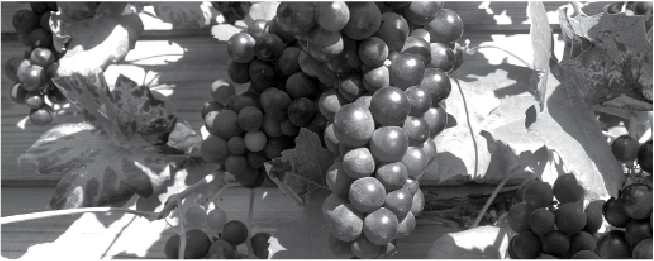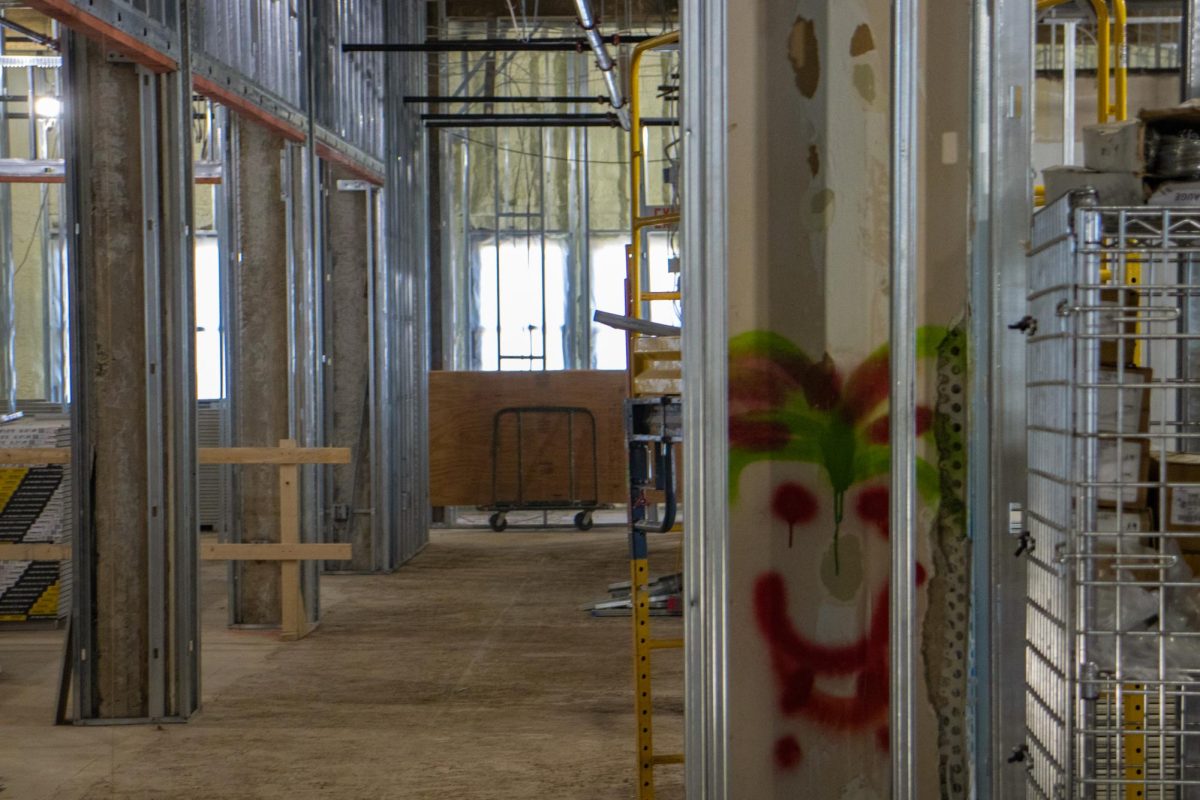Affects of Climate Change on Food Security: Growing Scarce
April 26, 2016
As the effects of climate change grow more pronounced, its threat to food production grows as well. All over the world, global warming is significantly damaging crops. In the United States, whether it’s a drought in California, flooding in Iowa or the acidification of ocean fisheries, some experts warn that Americans will also see the effects of global warming in gardens, farms, and grocery stores.
One of the most significant effects climate change will have on the U.S. is a drastic shift in where food is grown and when, or if, it will be available in the grocery aisle.
“If temperature and rainfall patterns change, areas that were suitable for growing a particular crop might no longer be suitable,” said Karen Knee, an assistant professor of envionmental science at American University. “The Napa and Sonoma areas, the wine and grape growing areas of California, are the perfect place to grow those grapes, but they’re becoming less and less perfect for it. It’s getting too hot. The perfect area for growing those grapes is moving north, and I think that’s happening with a lot of different crops.”
The geographic shift in where crops can grow in the U.S. will bring many new challenges to farmers across the country. Some of them may even have to change the crops they grow or move to new regions where those crops can grow.
One of the most significant effects climate change will have on the U.S. is a drastic shift in where food is grown and when, or if, it will be available in the grocery store.
A press release from the California Farm Water Coalition estimates that the economic losses from the climate change related to drought will double from $1.7 billion to $3.56 billion this year, and that unemployment in hard-hit valley communities will to rise above 40 percent.
A United Nations report cited by Suzanne Goldenberg in The Guardian states that the global changes in rainfall patterns and temperature will cause the average price of food to rise up to 84 percent by 2050. The same report also found that in the most extreme scenarios, heat and water stress could decrease crop yields by 25 percent. This spells bad news for a planet with an ever-growing population, and even worse news for nations with significant levels of poverty and the highest population growth rates.
“We do not anticipate [climate change to affect] domestic food security,” said Margaret Walsh of the U.S. Department of Agriculture (USDA). “The driver of domestic food insecurity isn’t agricultural production…it’s a socio-economic issue.”
According to a report that Walsh coauthored,the amount of food-insecure Americans is growing despite increasing domestic grain yields. And with food prices increasing over the next 35 years, this means that America’s most food insecure, the working class, will be the most at risk.
“We do not have enough information to say that climate change is a driver of food insecurity at this time,” Walsh said. “You could make the case that it is a driver at the community level where changes in climate are creating socio-economic changes that mean that people can’t afford food anymore. But at the national level, it doesn’t appear to be the case because there are such widespread social safety nets in place.”

According to the USDA, there are 48.1 million people living in food insecure households across the U.S., with single women with children, African-American households and low-income families most at risk for food insecurity. The effects climate change will have on these communities will create a greater stress on their food supply, increase their cost of living and lower their quality of life.
“In 2011 it was sopping wet in the Midwest and it went on really long into the spring,” Walsh said. “There weren’t going to be enough growing days for them to have a crop. In Iowa it finally got dry enough for them to plant, and they planted all of Iowa within something like 10 days. And the way they did that was by using giant equipment. Giant equipment isn’t an option if you have a small farm.”
The risk climate change poses towards small farmers and local farmers markets seem to be growing. But not everyone seems to be as worried as Walsh about small farmers.
“I think they ought to change the name of weather to ‘maybe,’” said Dan Donahue, the proprietor of the farmers market that frequents AU’s campus on Wednesdays. Donahue says that none of the small farms he does business with are worried about the effects of climate change.
“About 30 years ago…what we told them is that they should put in irrigation systems,” Donahue said of the small farmers he works with. “Some of them did and some of them didn’t, the ones that did prospered almost immediately from it, and the ones who didn’t…had to put them in a little later on.”
Donahue believes that weather is cyclical. Some years you lose a crop, some years the crops do well, but the best plan for farmers is to keep some “rainy day money” to compensate for years with a bad harvest.
On the California drought, and whether or not it will hurt small farmers, Donahue said that “bigger [farmers] are having problems [in California] too,” and disagrees with Walsh that the small farmers will have it worse in the future than large agro-businesses.
“When you pile on problems in agriculture, it’s not just one thing,” Donahue said, “You’re building a pyramid of problems.”
While the United States is not going to be facing a biblical famine anytime in the foreseeable future, the damage global warming will do to the global food production system will hurt those who are already the most at risk for starvation and food insecurity across the world.
“I think that [food insecurity in America] has nothing to do with food availability or climate change,” Knee said. “It is entirely a result of the income inequality in our country.”
But she acknowledges that a warmer planet may also have an affect on American food security.
“There are some low-income Americans whose lives will be made much worse by climate change,” Knee said.



